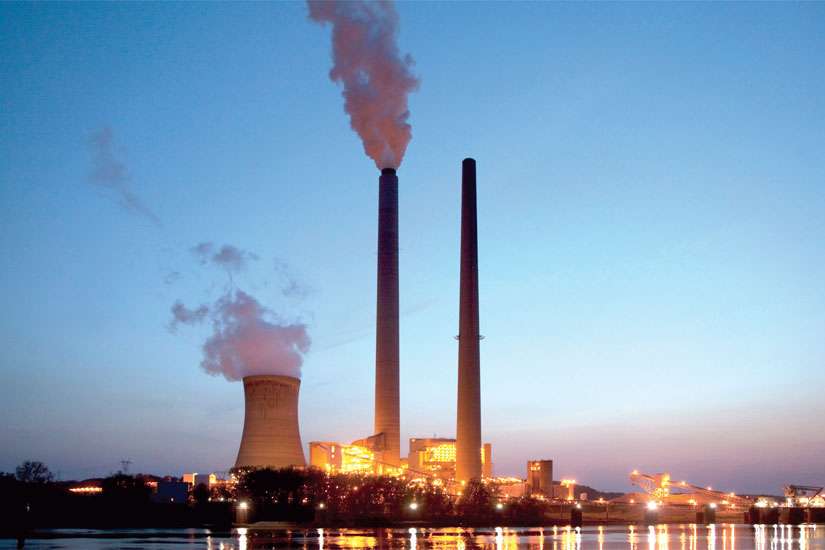Pope Francis declared the World Day of Prayer as part of his drive to persuade the international community to make substantial progress in limiting carbon emissions at the United Nations conference on climate change in Paris this December.
The Development and Peace “Create a Climate of Change” campaign will feature climate vigils from Oct. 23 to 25 and then culminate in a Catholic pilgrimage to Paris for the UN conference.
The campaign will be both spiritual and political, demanding the Canadian government commit itself to more ambitious carbon emission targets and encouraging Canada’s Catholics to examine in prayer how their own lifestyles and levels of consumption contribute to environmental decay, said Josiane Gauthier, Development and Peace’s director of in-Canada programs.
“Obviously, with the launch of the new encyclical by the Pope on ecological justice, it gives quite a bit of motor and strength to the idea that being Catholic is also about protecting the environment and nature and life in general,” Gauthier said.
As a non-Catholic, scientific observer of climate change, University of Toronto geography professor Danny Harvey believes the campaign is on target.
“I really think we need a spiritual change,” he said. “I don’t mean a spiritual change necessarily in a religious sense, but in the sense of looking at ourselves and asking ourselves what matters in life, what is important in life? Learning to be happy with less material things and being able to appreciate the beauty of the world, the beauty of life and the beauty of meaningful human relationships — that’s what I mean by a spiritual transformation. As long as we think that happiness is going to come through the acquisition of material things and we’re pursuing it with all our might, which is what we’re doing, then there is no hope.”
Impressed by this summer’s release of Laudato Si’, Pope Francis’ climate change encyclical, Harvey points out that science backs up Development and Peace’s call for action.
“Looking at it just from a scientific point of view, which involves no value judgments, we can say, ‘OK, you proceed along the current path there are a whole bunch of very negative consequences. To avoid these, you need to make certain changes. Those changes are not happening yet,’ ” said Harvey. “Then, of course, it goes beyond the science to ask, ‘Is that a moral or ethical question?’ That’s a non-scientific question. But to the extent that you think it’s wrong to kill other people, then that’s an ethical issue.”
With the backing of Canada’s bishops and inspired by Laudato Si’, Development and Peace grounds its idea of spiritual change in the teaching of the Church.
“Do we love our children and grandchildren, and their descendants, enough to change our way of living and our economic systems?” asks Saskatoon Bishop Don Bolen, chairman of the CCCB’s commission on justice and peace.
In his message to parishes and Catholic schools, Bolen stresses the part prayer and religious conversion will play in a successful campaign.
“Rather than resigning ourselves to pessimism or apathy, let us daily ask God’s assistance in discerning what the world needs and what we can offer, by living wisely, thinking deeply and loving generously in the power of the Holy Spirit,” Bolen writes.
Lives, in fact, are at stake in the climate change debate, said Gauthier.
“When you’re taking an honest look at this you have to question it,” she said. “You have to say, I’m not sure our behaviour is what God intended for this Earth. We are destroying it. And it doesn’t make any sense to destroy it. It’s our home. That’s what the Pope is telling us. It’s what keeps us alive.”
The people who deny that climate change is happening, or deny that there are human causes, will be part of the debate, whether climate campaigners want to repeat the old arguments or not, said Gauthier.
“I don’t think we can ignore climate denial,” she said. “It’s natural that people feel when they’re being questioned, that they feel a little bit threatened.”
Catholics may also discover they have allies in the fight against climate change — perhaps allies they would never have imagined. Gauthier points out that the Pope has encouraged Catholics to conduct a dialogue about “our common home” with all kinds of people.
“We have to step out of our comfort zones and get together,” she said.
“This is the time when our members can shine and really connect with people whom they might not presume they have anything in common with.”
Create a Climate of Change campaign materials are available at devp.org and from parish Development and Peace groups.

